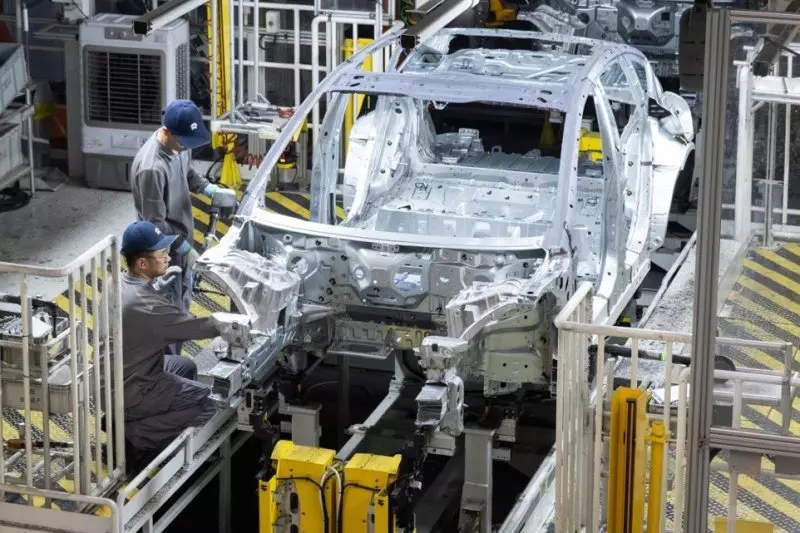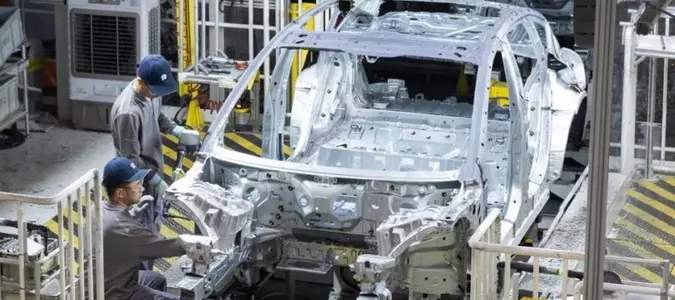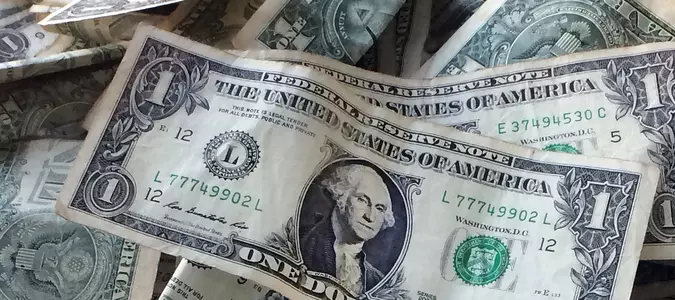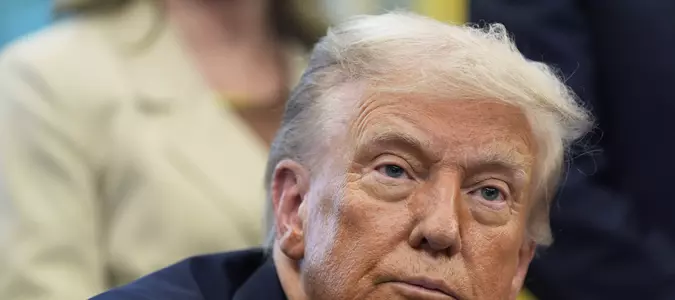

Mexico will raise tariffs to protect strategic industries
Mexico's government will shift its trade policy next year by raising tariffs on countries without free trade agreements, including China, India and South Korea.

Employees work on EV cars in an assembly line in a factory of Chinese electric carmaker Nio in Hefei, China, in April. imported light vehicles -- many from China -- would see Mexican duties rise from the current 15% to 20% to the maximum rate of 50%. File photo by Jessica Lee/EPA UPI
Sept. 16 (UPI) -- Mexico's government will shift its trade policy next year by raising tariffs on countries without free trade agreements, including China, India and South Korea. The move is aimed at reducing competitive disadvantages in key sectors and strengthening domestic production.
The plan covers 1,463 categories of goods, from vehicles and auto parts to steel, textiles, toys and furniture. Those products currently face import duties of 0% to 35%, but under the proposal they would be subject to rates of 10% to 50%, depending on the category.
In particular, imported light vehicles -- many from China -- would see duties rise from the current 15% to 20% to the maximum rate of 50%.
The initiative, part of the government's Plan Mexico 2026 economic package, drew immediate international reaction, particularly from Beijing, the most affected trading partner.
China's Foreign Ministry spokesman Lin Jian said his country "firmly opposes any form of economic pressure disguised as trade regulation."
He said the measure "undermines its legitimate rights" and urged Mexico to act "as a responsible partner in promoting fair and open global trade."
President Claudia Sheinbaum denied the initiative was aimed specifically at China or prompted by foreign pressure. Seeking to ease tensions, she said she will meet with officials from Beijing and Seoul to explain that the tariff increase is meant "to strengthen domestic production" and is part of the government's Plan Mexico 2026.
"We do not want any conflict with any country," Sheinbaum said, emphasizing that the measure is domestic economic policy, not a hostile act.
Mexico's Economy Ministry said the tariffs would cover about 8.6% of the country's total imports, valued at roughly $52 billion.
"This is not against any country; it's per product. In this case, we are applying a package aimed at protecting about 19 sectors of the economy, mainly automobiles and auto parts. These increases are not discriminatory or coercive," Economy Secretary Marcelo Ebrard told the Mexican outlet Grupo Fórmula.
"They apply to all countries with which we do not have a trade agreement, and the goal is to strengthen domestic production."
He added that Mexico's trade deficit with several Asian countries -- particularly China and South Korea -- has grown sharply.
"The pace of growth in that deficit worries us. For example, we send one dollar in exports to China and import 11. So when you see prices below cost, any Mexican manufacturer would ask why we are allowing that," Ebrard said, defending the tariff hike as the maximum permitted under World Trade Organization rules.
The proposal was sent to Congress this week as part of the 2026 budget, and approval is considered certain since the ruling party holds majorities in both chambers. Once approved, it would take effect 30 days after publication in Mexico's Official Gazette.
The United States and Canada, Mexico's partners in the USMCA trade agreement, will not be affected by the tariffs because of their existing agreements.
Mexican officials said the measure has multiple goals. The government wants at least 50% of inputs classified as "strategic" to be manufactured in Mexico by 2026, reducing reliance on foreign supply. At the same time, the plan seeks to protect jobs and narrow the trade deficit.
Economy Secretary Marcelo Ebrard said the priority is to protect domestic jobs, estimating that about 320,000 positions depend directly on the sectors covered by the measure.
The measure would also help reduce Mexico's large trade deficit with China, which exceeded $57 billion in the first half of 2025.
On the geopolitical front, the initiative comes amid pressure from the United States. Analysts say Mexico is also seeking to "appease" its main USMCA partner over concerns about China's influence, with the move coming ahead of the next review of the regional trade agreement in 2026.
















